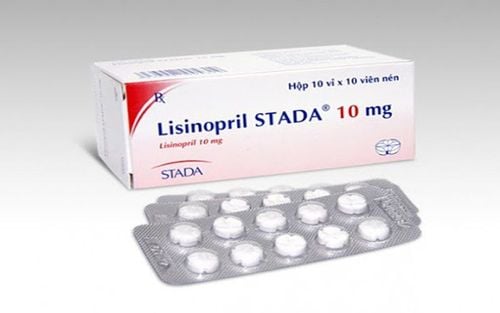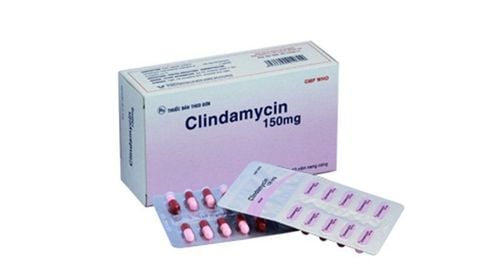This is an automatically translated article.
Tacrolimus is effective in preventing kidney, heart or liver transplant rejection. Tacrolimus belongs to a class of drugs called immunosuppressants, which work by weakening the immune system to help the body accept the transplanted organ.
1. What are the effects of Tacrolimus?
Tacrolimus is effective in preventing rejection of kidney, liver or heart transplants. Tacrolimus belongs to a class of drugs called immunosuppressants, which work by weakening your body's immune system to help your body accept the transplanted organ.
2. How to use Tacrolimus
Tacrolimus is given by injection into a vein or as an oral tablet. The injectable form of Tacrolimus is used in cases where you cannot take it by mouth. The dose will depend on your weight, medical condition, blood test results such as tacrolimus trough levels, and response to treatment.Use Tacrolimus regularly to get the most benefit from it. Absolutely do not arbitrarily increase the dose of the drug or abuse the drug for a longer time than the treatment regimen. This does not improve the condition of the patient, but also increases the risk of unwanted effects.

Thuốc Tacrolimus được tiêm qua đường tĩnh mạch
3. Undesirable effects when using the drug Tacrolimus
Some unwanted effects that may occur when using Tacrolimus include:
Tremors Headache Diarrhea Nausea, vomiting Abdominal pain Loss of appetite Difficulty sleeping Numbness tingling hands or feet At the injection site: swelling, heat, redness, pain,... Serious side effects: signs of kidney problems (eg, change in urine output), mental mood swings (anxiety, anxiety), symptoms of heart failure (such as shortness of breath, swollen ankles, unusual tiredness, sudden weight gain), muscle spasms or weakness, hearing problems (such as hearing loss, ringing in the ears), easy bleeding blood or bruising, stomach pain, stomach pain, dizziness, irregular heartbeat, chest pain, black stools, vomit that looks like coffee grounds, trouble breathing, fainting,... Increased risk of brain infection , which is rare but very serious and sometimes fatal (progressive multifocal encephalopathy). So get medical help right away if any of these rare side effects occur such as clumsiness, loss of coordination, weakness, sudden changes in thinking such as confusion or difficulty concentrating. , difficulty moving muscles, speech problems, seizures, vision changes. Tacrolimus hypertension can cause diabetes, symptoms may occur such as increased thirst, hunger, frequent urination, ... Before prescribing, the doctor always considers the benefits of Tacrolimus medicine. greater risk of side effects. However, some cases when taking Tacrolimus can still occur unwanted effects. Therefore, when unusual signs appear, especially when an allergic reaction occurs with accompanying symptoms such as difficulty breathing, severe dizziness, rash, itching or swelling of the face, tongue, and throat. ,... In this case, the patient should immediately notify the medical staff for immediate intervention.
4. Notes when using Tacrolimus
Precautions when using Tacrolimus include:
Report a history of allergy to Tacrolimus or other macrolide drugs such as sirolimus, or any other allergies. Tacrolimus may contain inactive drug ingredients such as hydrogenated polyoxyl 60 castor oil and may cause allergic reactions or other serious problems. Report medical history especially kidney disease, liver disease, diabetes, high blood pressure, mineral imbalance like high potassium, any recent or current infection, cancer. Tacrolimus may increase your risk of developing skin cancer, so it's important to limit your time in the sun. Avoid using bleaching agents and wear sun-protective clothing when outdoors. Tacrolimus may cause a condition that affects heart rhythm (QT prolongation). QT prolongation can cause tachycardia and other symptoms such as dizziness and fainting, but very rarely. However, the risk of QT prolongation may be increased if you are taking other medicines that can prolong QT or certain medical conditions. Before using Tacrolimus tell your doctor or pharmacist about any medications you are taking or a medical condition such as slow heartbeat, heart failure, etc. family history of certain heart problems (QT prolongation). electrocardiogram, sudden cardiac death). The level of potassium or magnesium in the blood also increases the risk of QT prolongation, especially if you are taking diuretics or have conditions such as diarrhea, excessive sweating or vomiting, etc. Tacrolimus may make you more susceptible to infection or worsen any existing infections. Therefore, wash your hands to prevent the spread of infection, avoid contact with people who have infections that can spread to others such as measles, flu, chickenpox, etc. Do not vaccinate until you have received the vaccine. With your doctor's consent, avoid contact with people who have recently received live attenuated vaccines such as nasal flu vaccine,... Tacrolimus may increase blood potassium levels, so before Use of potassium supplements or salt substitutes that contain potassium should be consulted with your doctor. Before surgery, tell your doctor or dentist about any medications you are taking including prescription drugs, over-the-counter medicines, vitamins, and herbal products. Older adults may be more sensitive to the side effects of Tacrolimus, especially QT prolongation. You should not become pregnant while taking Tacrolimus because Tacrolimus can harm an unborn baby. Use effective birth control in both men and women while taking the pill. Some tests such as blood potassium levels, blood sugar, tacrolimus in the blood, liver and kidney function tests, blood pressure, etc. will be performed periodically to monitor the progression of the disease or Check for unwanted effects. For the medicine to give the best possible benefit, it is important that you receive the full dose according to the dosing schedule. If you miss a dose, contact your doctor to get a new dosing schedule.

Bệnh nhân suy tim nên lưu ý khi dùng thuốc Tacrolimus
5. Drug interactions
Drug interactions can decrease the effectiveness of Tacrolimus, or increase the effect of unwanted effects. Tell your doctor about all other medicines you are taking, including prescription drugs, over-the-counter medicines, vitamins, and herbal products. Do not stop, start, or change the dose of any medicine without your doctor's consent without your doctor's consent.
Some drugs that may interact with Tacrolimus include:
Cyclosporine Sirolimus Temsirolimus Ziprasidone Other medicines that can increase the level of potassium in the blood include amiloride, spironolactone,... Other medicines increase the risk of infection infections and weakening the immune system such as natalizumab, rituximab,... Cimetidine Danazol Nefazodone Ethinyl estradiol Methylprednisolone azole antifungals such as voriconazole, itraconazole HCV protease inhibitors: nelfinavirm, ritonavirm, telaprevir, boceprevir,... Rifamycins: rifampin, rifabutin Some anticonvulsants such as phenobarbital, phenytoin, ...
6. How to store Tacrolimus
Tacrolimus is stored in the hospital, not at home.
In summary, Tacrolimus is effective in preventing kidney, liver or heart transplant rejection. Tacrolimus belongs to a class of drugs called immunosuppressants, which work by weakening your body's immune system to help your body accept the transplanted organ. However, Tacrolimus can cause some unwanted effects and drug interactions, so tell your doctor what medicines you are taking to reduce the risk of side effects and increase the effectiveness of the procedure. treatment.
Please dial HOTLINE for more information or register for an appointment HERE. Download MyVinmec app to make appointments faster and to manage your bookings easily.
Reference source: webmd.com













